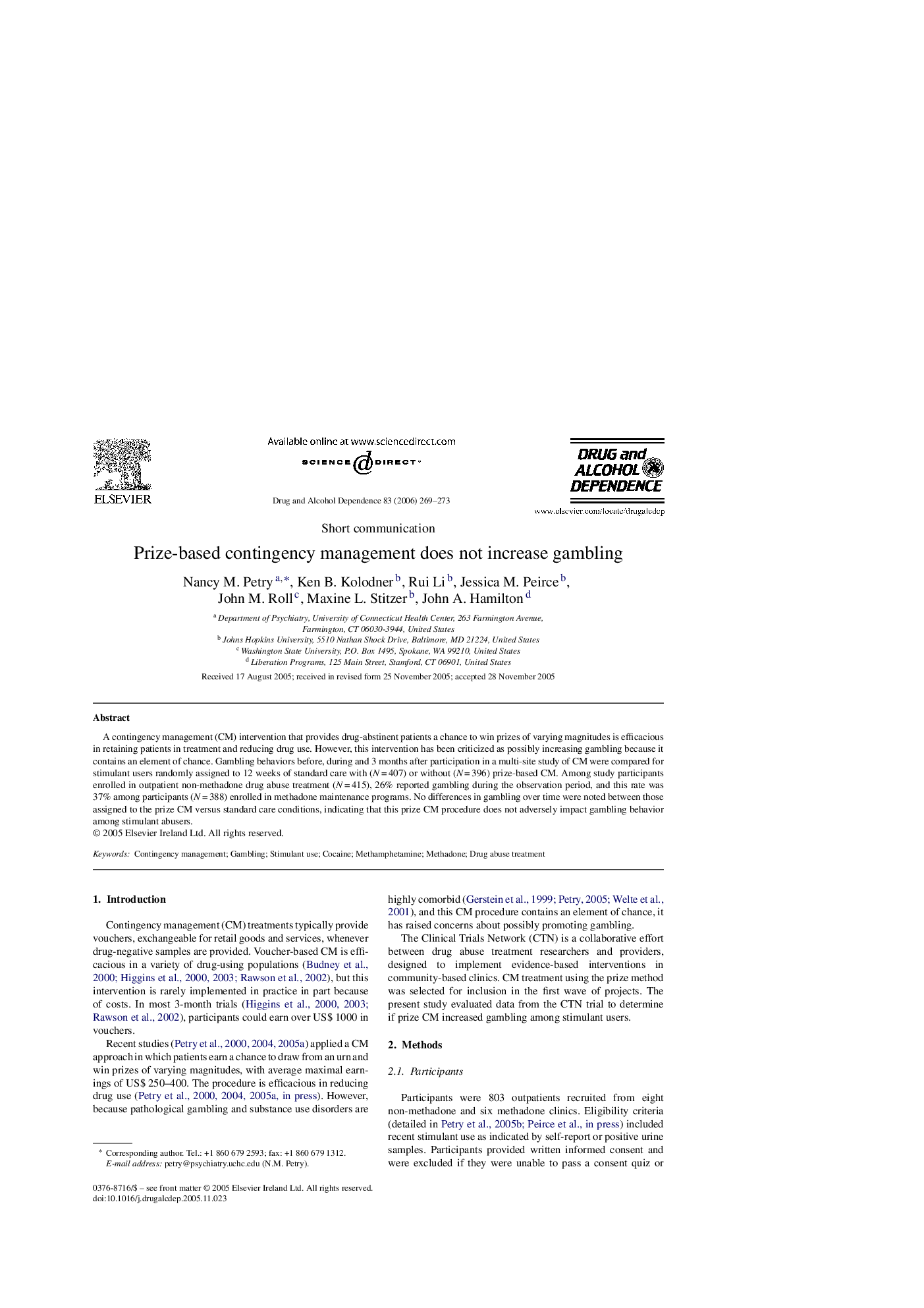| Article ID | Journal | Published Year | Pages | File Type |
|---|---|---|---|---|
| 1071485 | Drug and Alcohol Dependence | 2006 | 5 Pages |
A contingency management (CM) intervention that provides drug-abstinent patients a chance to win prizes of varying magnitudes is efficacious in retaining patients in treatment and reducing drug use. However, this intervention has been criticized as possibly increasing gambling because it contains an element of chance. Gambling behaviors before, during and 3 months after participation in a multi-site study of CM were compared for stimulant users randomly assigned to 12 weeks of standard care with (N = 407) or without (N = 396) prize-based CM. Among study participants enrolled in outpatient non-methadone drug abuse treatment (N = 415), 26% reported gambling during the observation period, and this rate was 37% among participants (N = 388) enrolled in methadone maintenance programs. No differences in gambling over time were noted between those assigned to the prize CM versus standard care conditions, indicating that this prize CM procedure does not adversely impact gambling behavior among stimulant abusers.
